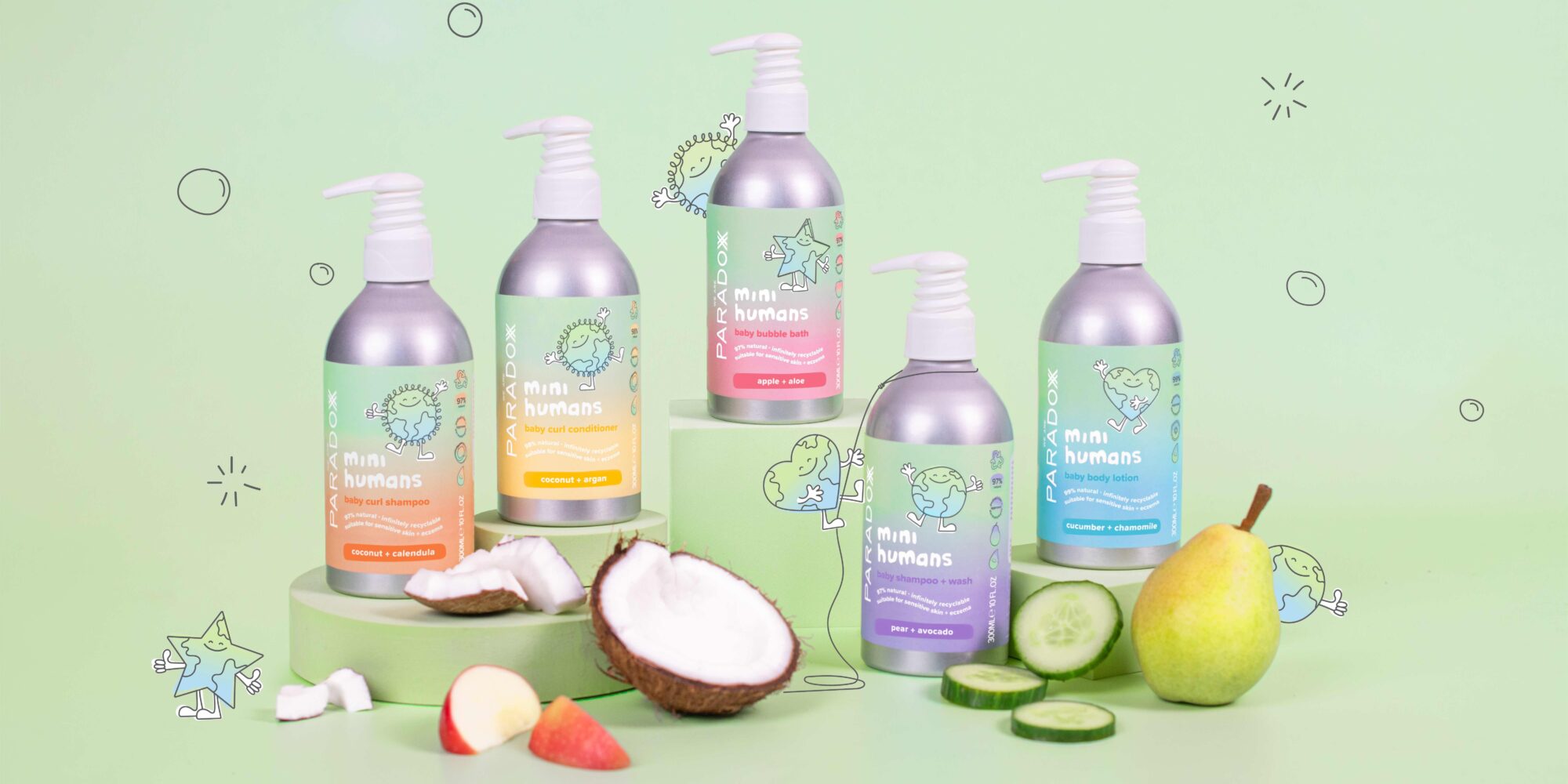
The Conscious Beauty Group Launches Eco-Conscious Baby Line Mini Humans At Target
Like up to a quarter of all babies, Yolanda Cooper’s 1-year-old daughter Yazmin was born with eczema-prone sensitive skin. Unlike most babies, Yazmin’s mother is the founder and CEO of The Conscious Beauty Group, parent company of plastic-free haircare brand We Are Paradoxx and hair tools brand Supernova, a role that gives her the ability to whip up products tailored to Yazmin.
“I’m used to being in the lab creating new products. I created a lotion formula I could trust for her that’s 99% natural, and I put it in one of our aluminum bottles,” says Cooper. “I started using it on her newborn skin and quickly realized we had created something fairly magical. I had a cliched lightbulb moment of asking myself, ‘Why isn’t there a baby brand that’s good for the baby and good for the planet?’”
That lightbulb moment led Cooper to contact Target in the summer of last year to capitalize on her idea for an eco-conscious baby brand. She figured the retailer probably had its plans finalized for spring of this year, but it didn’t hurt to give it a shot. It turns out Target loved the idea and wanted to jump on it. Mini Humans, an offshoot of We Are Paradoxx, has now landed at 170 Target stores and on the chain’s website with five products.
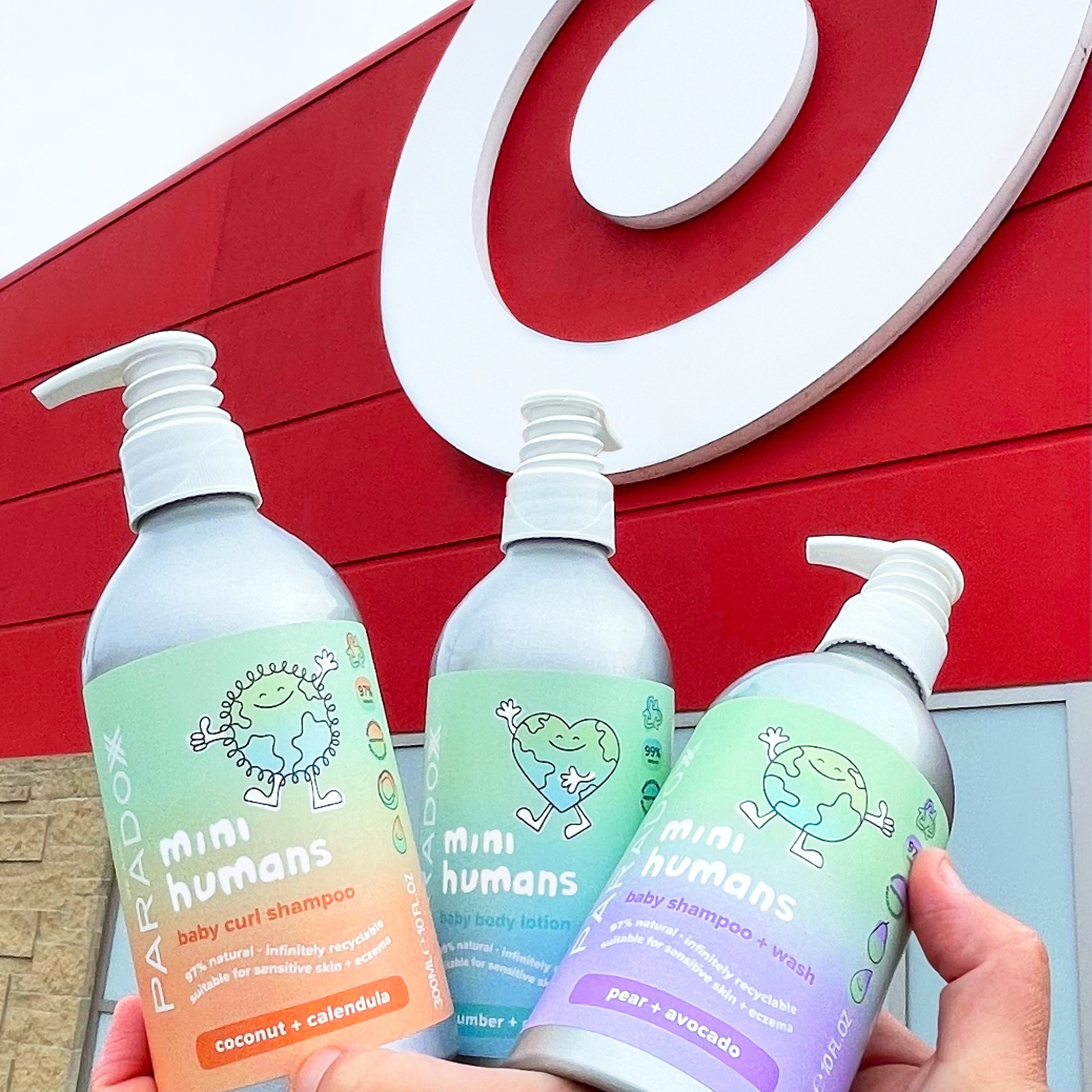
Priced at $9.99 each, the products are Baby Body Lotion, Baby Bubble Bath Soaks, Baby Curl Shampoo, Baby Curl Conditioner and Baby Shampoo + Body Wash. They’re housed in aluminum bottles with fully recyclable accordion pumps and have 97% to 99% natural formulas with ingredients chosen because they perform and aren’t scarce. Mini Humans adheres to Target Zero and Target Clean standards for packaging waste reduction and clean formulations, respectively.
“Walking along the aisle of any major supermarket or specialty store, I saw no brand that was caring about the vessel the product was going in as well as what was in the product,” says Cooper. “There are really great formulations out there already, but what I didn’t see was, let’s also look at the planet. That is what we have tried to do.”
Mini Humans is aimed at gen Z and millennial parents interested in sustainability. While sustainability may be on the back burner for their personal purchases, it could be pushed to the front burner for purchases they make for their children. “We are leaving behind this world for our children,” says Cooper, a mother of two. “Even if you might not be driven to make a sustainable purchase for yourself, you might think harder about what you buy for your children because they will be here when we are no longer here.”
Of course, that doesn’t mean parents, particularly those shopping for value at Target, will pay any price for sustainable baby goods. Mini Humans is priced to be accessible and boost sales volume. “This is about getting it into as may mums’ hands as possible,” says Cooper. “We recognize that being green costs money, and you shouldn’t always pass it on to the consumer. We all know margins in personal care and beauty are large enough that you can take a little bit of a hit to get it into as many hands as possible.”
“Why isn’t there a baby brand that’s good for the baby and good for the planet?”
Initially, Cooper considered licensing familiar children’s characters for Mini Humans. Instead, it developed earth-focused circle, heart and star characters in-house that it can play with in digital and physical environments. They’re featured prominently on Mini Human’s labels. The goal for the brand’s labels over the next 12 months is to shift from standard peel-off labels to labels printed directly on the packaging with sustainable ink.
Mini Humans doesn’t have an official exclusivity arrangement with Target, but Cooper doesn’t envision it expanding beyond the retailer in its first year of availability. Mini Humans’ merchandise pipeline includes fragrance-free products, additional scents to enliven bathtime and sunscreen. “We believe SPF for children is a really exciting and underserved category, especially when it comes to sustainable products,” says Cooper. “There is no completely plastic-free SPF for kids.”
In October last year, The Conscious Beauty Group, which is headquartered in Belfast, raised 1.25 million pounds or roughly $1.5 million at the current exchange rate from Aircore Ventures, a Belfast-based investment vehicle spun out of renewable energy company Air Core Ltd., and Lotus Herbals, the Delhi-based natural beauty brand, to support the launch of Mini Humans. It previously raised 3.5 million pounds or roughly $4 million. A substantial portion of its capital has been poured into commercializing Supernova’s hair tool, a three-in-one appliance that straightens, waves and curls slated to debut soon.
Discussing last year’s raise, Cooper says, “We didn’t want to do too big a raise for too long a runway because of the things we are moving from pre-revenue to trading businesses. The valuation can change once we have eliminated the development risks with Supernova. We raised enough for a one-year runway. Once we get Supernova to market, we will start to look at what the funding future looks like for the company.”
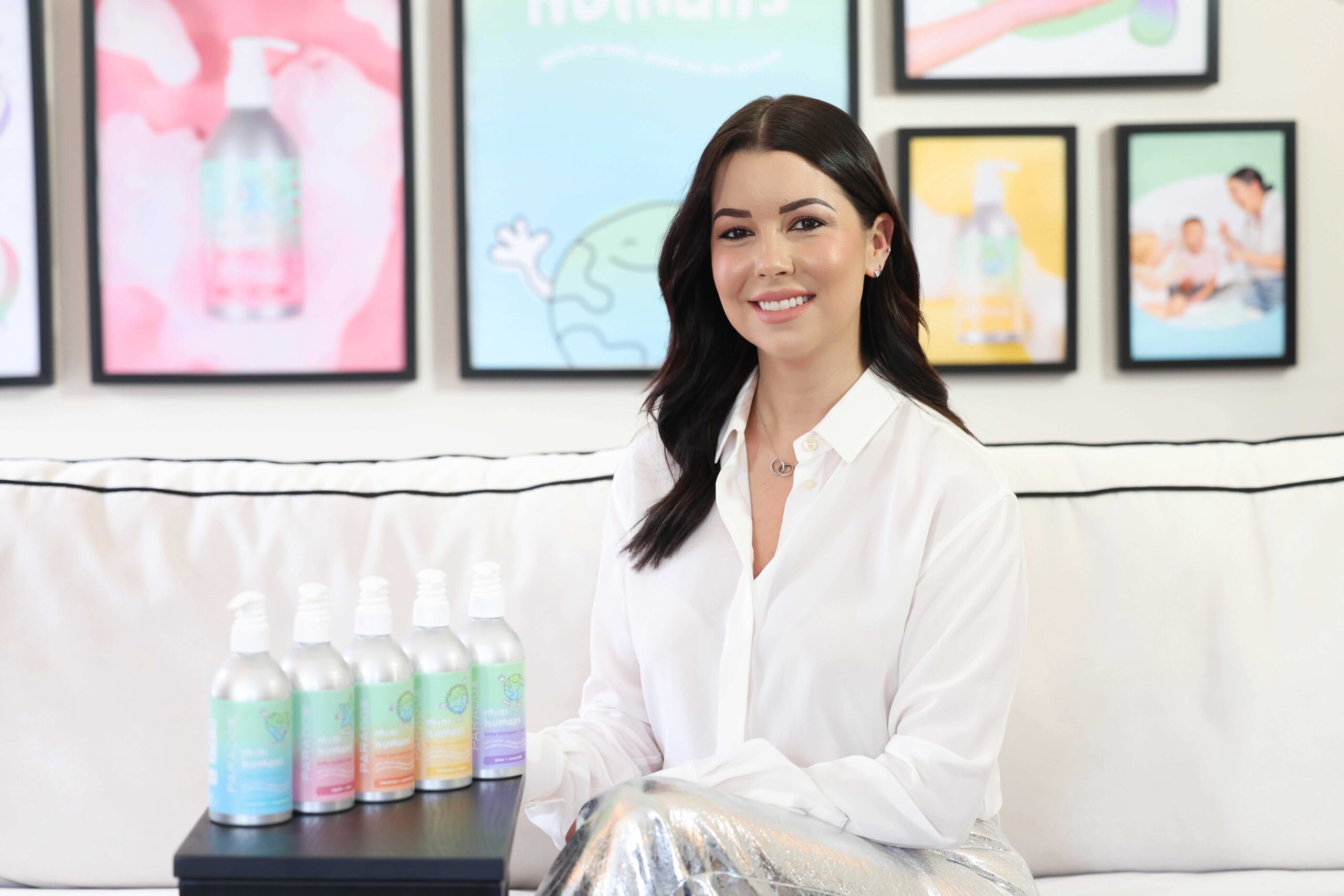
This year, The Conscious Beauty Group expects to reach around 2 million pounds in revenues or roughly $2.5 million, double the amount it reached last year. It’s on track to become profitable in 2025. Today, We Are Paradoxx is its largest brand. It’s carried by Ulta Beauty, Cult Beauty, Lookfantastic and Sephora in the United Kingdom. Informed by Cooper’s experience losing her hair due to having COVID and postpartum hormonal fluctuations, We Are Paradoxx’s recently released hair growth range with Advanced Scalp Serum, Growth Thickening Shampoo and Growth Thickening Conditioner has promptly become a bestseller.
“From the reception it’s been getting, Supernova is going to make the biggest top-line revenue impact quicker than the other two brands. Usually when you pitch a brand to retailers, some will say yes and some will say no, but literally everyone we are taking Supernova to is saying yes. It’s going to scale quickly because it’s so unique,” says Cooper. “The opportunities with Mini Humans and We Are Paradoxx are as great, and they will get to the same revenue level, but it just might take longer to get there because they are in such competitive spaces.”
The Conscious Beauty Group isn’t necessarily stopping at three lines. “We believe that, as a beauty industry, we should not be using single-use plastics. We just don’t believe there is any such thing as good plastic,” says Cooper, global marketing manager for Vita Liberata prior to starting We Are Paradoxx in 2018. “In order to really shake up the industry, I don’t think you can really make the positive change that’s required in one vertical. I absolutely think we will go into other categories once we get these brands into a scaled profitable model.”


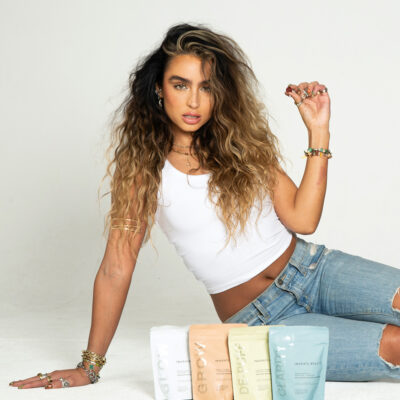
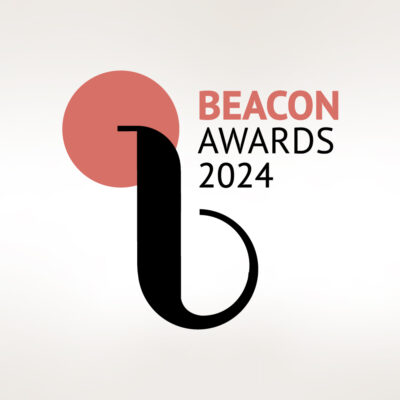
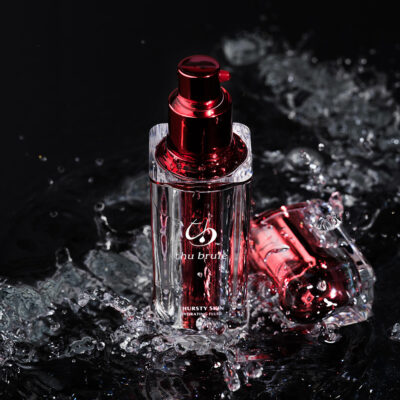
Leave a Reply
You must be logged in to post a comment.